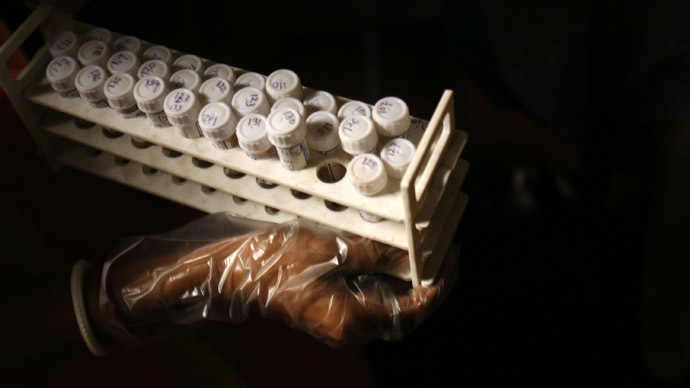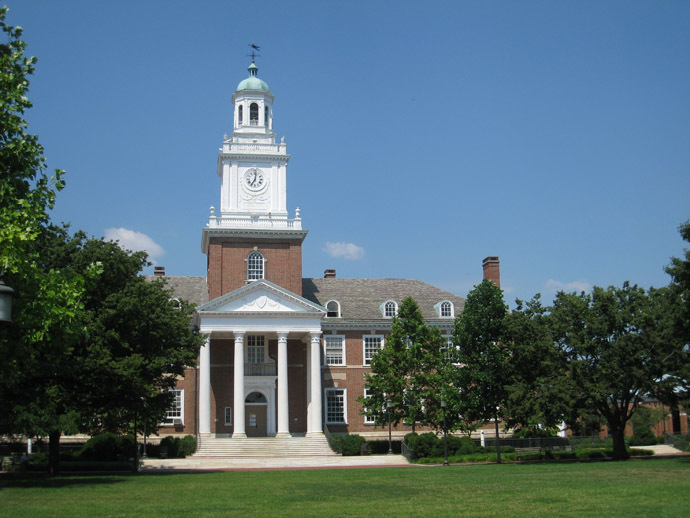Johns Hopkins faces $1bn class lawsuit over experiments on people in STDs study

Over 750 plaintiffs are suing Johns Hopkins University over its role in medical experiments in Guatemala in the 1940s and 1950s. Hundreds were deliberately infected with sexually-transmitted diseases as part of a US government program.
The lawsuit in Baltimore seeks $1 billion in damages for
individuals, spouses and children of the victims, who were
infected with diseases including syphilis and gonorrhea. It seeks
at least $75,000 in damages for each of nine counts.
Former research subjects and their families claim Johns Hopkins
officials had "substantial influence" over the studies
and were involved in masterminding the experiments. The
plaintiffs also feature the estates and families of 124 people
who died from complications of diseases that they contracted
through the hazardous experiments.
While an attorney for the university has called the suit "baseless," officials from the institution described the experiments as "deplorable" and "unconscionable," while arguing they didn't “initiate, pay for, direct or conduct” the Guatemala studies.

“For more than half a century since the time of the Guatemala
study, scholars, ethicists and clinicians have worked with
government officials to establish rigorous ethical standards for
human research. Johns Hopkins welcomes bioethical inquiry into
the US government’s Guatemala study and its legacy,” Kim
Hoppe, a university spokeswoman, said in an email, according to
the Baltimore Sun.
“This lawsuit, however, is an attempt by plaintiffs’ counsel
to exploit a historic tragedy for monetary gain,” he added.
In 2010, US President Barack Obama called the experiments carried
out during the administration of President Truman, "clearly
unethical" and apologized to those subjected to them,
expressing “deep regret.”
In 2011, the victims sued eight US government officials over the
study, a federal judge dismissed the case, however, saying that
the government could not be held liable for actions committed in
another country.
The initial intent of the study in Guatemala was to look for new
ways to prevent STDs, including gonorrhea, chancroid and
syphilis, which can be fatal if untreated. The first experiments
involved infecting prostitutes with gonorrhea or syphilis, and
then allowing them to have unprotected sex with soldiers or
prison inmates. When a few of these men became infected, the
research approach changed to direct inoculation of soldiers,
prisoners, and mental patients.
About 1,500 study subjects were involved. Although institutional
officials were aware of the study, the subjects were not informed
of the purpose of the study and did not provide consent.
The ethical violations included use of study subjects who were members of highly vulnerable populations; research without consent and deception in conducting the experiments. According to US Department of Health and Human Services, correspondence between the investigators indicates that they and their superiors recognized the unethical nature of the research studies.
The study was halted in 1948, when rumors about dodgy experiments began spreading.
The unethical study was funded by a grant from the US National
Institutes of Health to the Pan American Sanitary Bureau (which
became the Pan American Health Organization) to several
Guatemalan government ministries. Apparently, the study had never
been published.
According to the
report on the Guatemala experiments by the Presidential
Commission for the Study of Bioethical Issues, a committee of the
National Research Council, dedicated to venereal diseases, was
responsible for giving the go-ahead to the studies. Dr. Joseph
Moore, from Johns Hopkins University, chaired the 1946 study
section that approved the Guatemala research.
“The experiments in Guatemala starkly reveal that, despite
awareness on the part of government officials and independent
medical experts of then existing basic ethical standards to
protect against using individuals as a mere means to serve
scientific and government ends, those standards were
violated," the report stated.
The Guatemala experiments have called to mind the notorious
Tuskegee syphilis experiment, conducted between 1932 and 1972 by
the US Public Health Service to study the progression of
untreated syphilis in black men in rural Alabama, who were told
they were receiving free healthcare from the government as a
treatment for "bad blood".
None of the men infected was informed he had the disease, nor was
anyone treated for it with penicillin when it became proven as
effective in syphilis cases.












